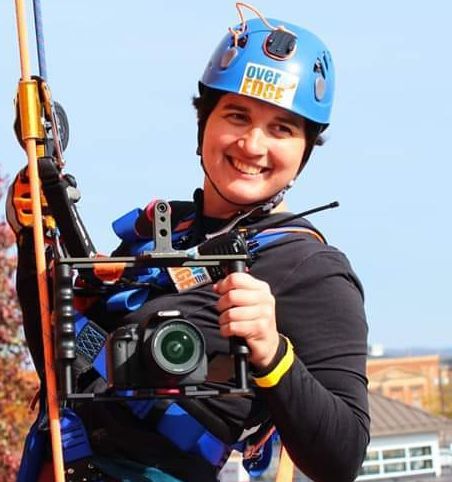It was already an unsuccessful date that Gigi Kilroe just wanted to be over. The man filled up the evening with stories about himself, and she hadn’t been that interested in him to begin with.
She had met him through work at the day care where she worked with 3-year-olds. After leaving the restaurant he took her to the school under the guise of showing her something he was working on.
Still not interested in his advances, Kilroe went with him, admitting she was young and naive. After all, she knew him, he was friends with the business owner, he was nice.
Alone in her classroom, the man forced himself on her and raped her on the floor of the same room she would need to come back and work in every day.
This wasn’t the first time Kilroe had been sexually assaulted. She had been raped in college and abused by her high school boyfriend. Years later she would uncover a repressed memory of being assaulted by her half-brother as a child.
And like all those other times, she never told anyone.
“I didn’t think anyone would believe me,” she said. “I thought they would say, “Oh, he’s such a nice guy he would never do that.”
Kilroe’s memories of sexual assault and violence are all too similar for many throughout Lycoming County and the rest of the world.
Lurking beneath the surface of many communities, sexual abuse affects one in six people in America. In Lycoming County, roughly 200 to 300 women report abuse each year, but advocates agree that the true number of assaults is actually much higher.
Amber Morningstar, director of the YWCA’s Wise Options program, said only a handful of women taken to the hospital after being sexually assaulted will take their case to court.
She added that slim charges could be due to a lack of evidence, fear from the victim to relive their experience or that they won’t be believed by a local jury. In addition, many victims suffer from mental health issues and are not always able to articulate what happened to them.
Wise Options is the only women’s advocacy group in Lycoming County, and works with victims as they recover from the assault, giving them emergency housing, connection to the court system and staying with them through the court process.
Cycle of abuse
For many victims, leaving their situation can be one of the most dangerous times for them. This often is when the perpetrator will become more violent, according to victim advocate Erin Scholl, with Wise Options.
She said the common occurrence referred to as the “cycle of abuse” can be frustrating from advocates to work with.
“We remember that we are trauma informed and we remember that everybody’s story is different,” they might come through a few times and they might change their minds a few times, but there are reasons why and we understand that.”
She added that ensuring victims know that the door to support is always open and they have a way out of their situation is vital to ensure they always have somewhere to come back to.
More resources
Scholl added that many victims don’t know that they are in an abusive relationship.
“They only think that you need to have scars and bruises and blood to be in an abusive relationship,” she said. Wise Options works with these individuals to ensure they understand what a good relationship is and what control they are able to have over their own lives.
The highest reported age of abuse is from 16 to 24, Scholl said. This may be because it’s the age most people are beginning to date. Education for this age range is important so that people know what to watch out for and what resources are available for them.
Now in her 50s, Kilroe said awareness of sexual assault and resources for survivors has grown over the years. Years after being assaulted at a fraternity house while attending Bloomsburg University, Kilroe said she has gone back and found resources at the university that weren’t there for her in the 1970s.
A unified front
While sexual violence is not uncommon in Lycoming County, Morningstar added that the connection between the county’s support groups, court system, and law enforcement offices is very important.
“We really have a slew of community support,” Morningstar said, but she added that recent efforts have begun to focus heavily on prevention.
Educating youth, identifying individuals who may become perpetrators, and offering a better response team for victims is vital, she said.
Training for law enforcement, local judges and victims service advocates helps to present a unified local front, Morningstar said.
Building boundaries
After years of therapy, sharing her story and building a support system for herself and even writing a book about her life, Kilroe said she has learned how to set boundaries for herself.
Constantly looking out for others, she always wanted to make sure they were happy, even at her own expense.
“It finally dawned on me that I had a right to say no. I had a right to keep my boundaries,” Kilroe said. “Your voice matters. Your feelings matter. And your boundaries matter. And you’re worth the journey to get there.”
Kilroe advises anyone who has experience sexual abuse should find someone to talk to and “unload that trauma.”
If you are experiencing sexual abuse, call this 24/7 crisis hotline: 1-800-326-8483




